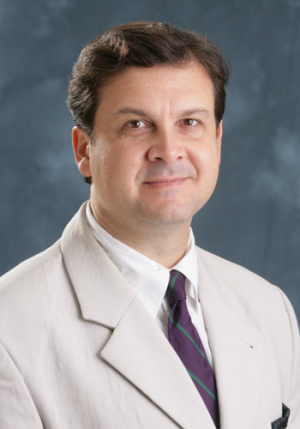Peter Vekilov, associate professor of chemical engineering, recently received the award for Excellence in Research and Scholarship at the associate professor level from the university. His nomination was submitted by Michael Harold, chairman of the Department of Chemical Engineering, and supported by five scientists in his field from across the country.
Vekilov’s nomination materials outline his pioneering research with implications in identifying ways to mitigate the harmful effects of debilitating diseases such as sickle cell anemia, cataracts, diabetes and Alzheimer’s.
One supporter of Vekilov’s nomination for the award credited him as “one of the pre-eminent scientists in his field.”
Three such awards given each year to faculty members who have achieved a substantial record of outstanding research, scholarship or creative activities in their field. Each award carries a $5,000 stipend and a plaque recognizing the achievements of the honored faculty member.
In further support of his research activities, Vekilov also recently received a research grant from The Welch Foundation.
The Welch Foundation provides private support for fundamental chemical research at universities, colleges, and other educational institutions within the state of Texas.
Widely viewed as one of the most prestigious grants in Texas higher education, this award marks the third time a faculty member of the Department of Chemical Engineering has received a Welch Foundation grant.
Valued at $150,000 over three years, the grant will fund research into the role water plays in the process of insulin crystallization in particular and in the aggregation of proteins in solutions in general.
Vekilov’s research involves looking at the mechanisms surrounding the process in which water molecules separate from insulin molecules as they form crystals.
“It seems that water is the main determinant of all aggregation processes of proteins in solution. So if the proteins have to aggregate, water determines the thermodynamics and the kinetics,” said Vekilov.
This knowledge could help scientists control protein aggregation in solution. “This is very fundamental knowledge,” Vekilov said. “It will be applicable to various fields such as protein aggregation in diseases like sickle cell anemia, Huntington’s disease, and Alzheimer’s.”
